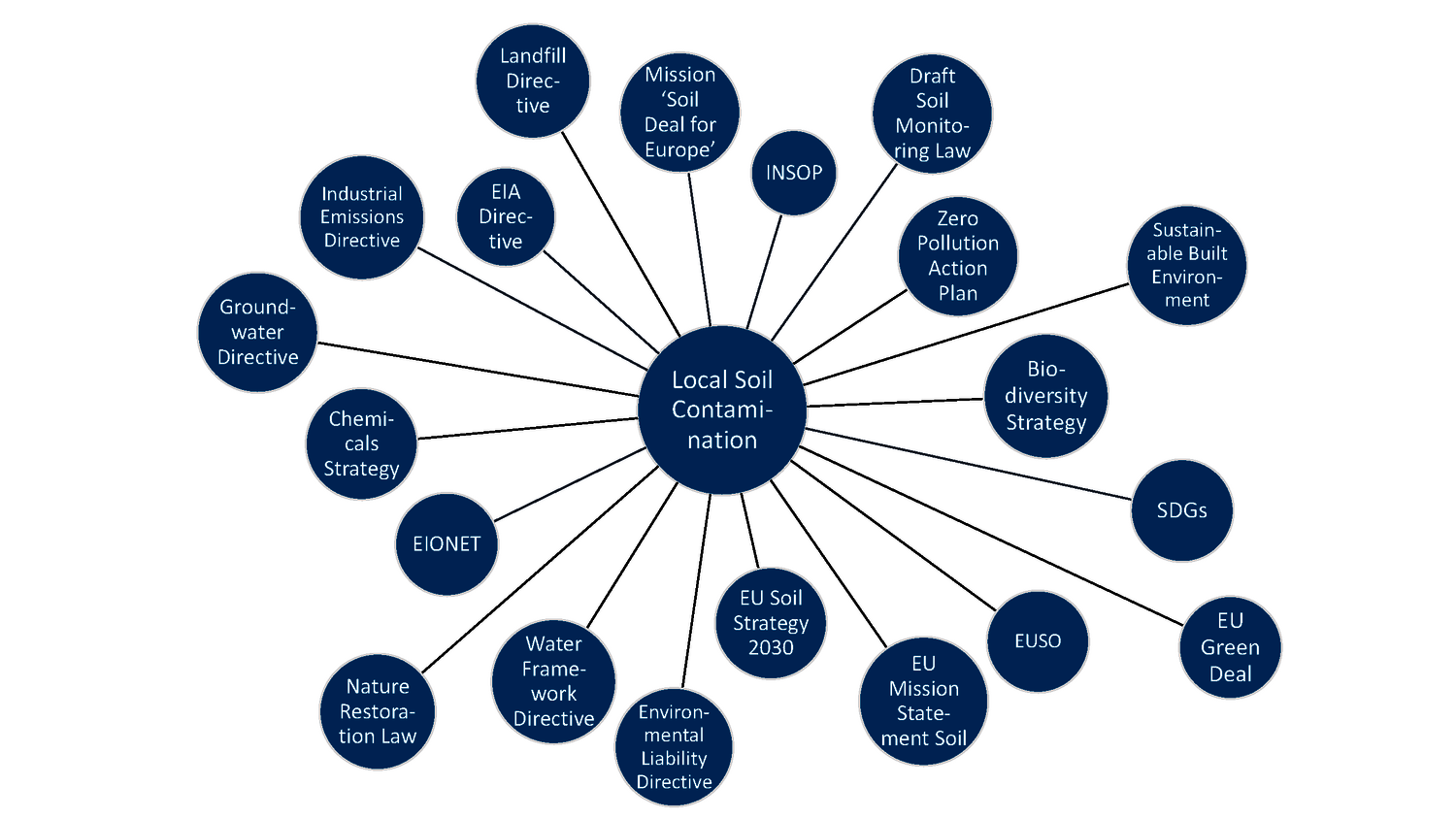Activities
Meetings
To fulfill its missions of experience and knowledge exchange, COMMON FORUM holds regular meetings to discuss current legal, technical and organizational issues in the field of contaminated land management and land recycling with the aspect of sustainability.
Thematic Working Groups
To closely follow specific topics, COMMON FORUM has been initiating several Working Groups and Teams to discuss urgent issues, producing position papers and initiating online discussions, workshops and webinars
- Soil as a Resource
- Diffuse Pollution
- PFAS
- Lead
- EU Soil Thematic Strategy
Further Activities
- Common views are developed and expertise is offered to the European Commission, relevant stakeholder networks and European Union research projects (e.g. via participation in advisory boards)
- The exchange of information between the network experts is done via thematic questionnaires (e.g. on lead, diffuse pollution, liability, excavated soil).
- The COMMON FORUM has continuously discussed the technical and political aspects of the contaminated soil issues regarding the EU soil policy development (see also the NICOLE & COMMON FORUM . EU Soil Strategy "Athens Statement 2022").
- Collaboration has been established with the main European and International networks or initiatives operating in the same field such as NICOLE (industry and service providers), EUSO (European Soil Observatory and its Stakeholder Forum), INSOP (International Network on Soil Pollution), SOILveR (soil and land management research funding platform), EmConSoil (emerging soil contaminants network), SedNet (Sediment management), Cabernet (Brownfield regeneration) and IMPEL (European environmental inspectorates network).
- Technical support to network members on specific issues.
- Proposal of technical guidance documents for EU Directives implementation (e.g. guidance values for contaminated soil management, application of the polluter pays principle, how to tackle uncertainties).
- Identification of RTD needs and discussions with researchers on specific topics

